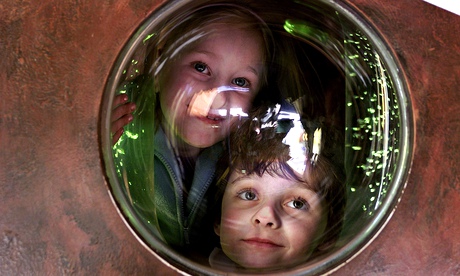
Roald Dahl's perennially popular children's literature has serious form for perturbing parents and other responsible adults, even as it launches kids with a whizz and a bang into the dangerous, joyful world of independent reading. I vividly remember my primary school English teacher denouncing Danny the Champion of the World because it encouraged pheasant-theft and underage driving (neither of which I tried, though I'll admit to having been tempted by both).
The latest hoo-ha, over the word "slut" in Dahl's retelling of Cinderella, has led to Australian Aldi removing Revolting Rhymes from sale – a measure that reminds me of the forced substitution of "twit" for "twat" in the Jacqueline Wilson book My Sister Jodi, after Asda took it off their shelves following a customer complaint.
This still makes me very angry. To me, a nasty 19-year-old character, using a nasty word once, is infinitely better for young readers – for their grasp of context, their sense of being trusted with "the real thing", their right to reading matter that accurately reflects the imperfect, grubby, challenging world in which they live – than being fobbed off with a sanitised, outdated alternative like "twit", which will always come across as a linguistic misstep.
"Slut" is a slightly trickier proposition; a word now so frequently used to slap down, silence and shame women that its presence in a book for young children might well seem jolting, even unacceptable, to a casual browser. But, again, context is everything. Dahl's Cinderella story is a grimly funny injunction not to yearn for a prince who may be rolling in money, but who chops off heads for fun. The offending lines
"The Prince cried: 'Who's this dirty slut?/Off with her nut! Off with her nut!'"
also riskily straddle the boundary between the two meanings of "dirty sloven" and "unchaste" (although shades of both are undoubtedly intended to come across). And the reader is left in no doubt that it's the Prince who uses the word and not Cindy, its target, who is the Bad Egg here. I'm only left wishing that the sword-wielding psycho got more of a comeuppance, and that Cinderella made her own living (and jam) at the end.
From would-be poisoning of evil grandparents to punitive metamorphosis of bloodthirsty neighbours, Dahl's oeuvre has always excited controversy. It involves moral ambiguity, adult cruelty and far too much sugar. The unnerving cover of the new Penguin Classics edition of Charlie and the Chocolate Factory, and the vigorous debate it has provoked , testify to its continuing power to shock.
I'm not arguing that anything goes in children's books. Returning recently to my own early childhood favourites on my daughter's behalf, I wound up weeding out the Noddy books, in which, for instance, golliwogs not only feature but are thoroughly bad lots throughout, and concluding with sorrow that some Enid Blyton titles just don't translate for contemporary youngsters. But the Dahl books are going nowhere. Children need darkness, grotesquerie and gore, and the sense of being trusted with "the real story" that Dahl has always given them. Even if (perhaps especially if) that makes grown-ups uncomfortable.

